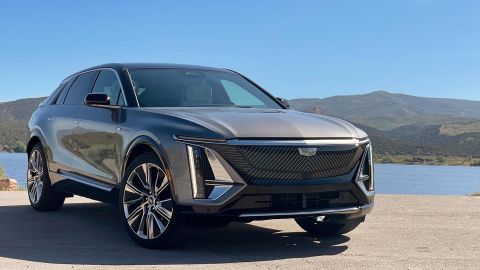Several Tesla, GM & Ford EVs to lose tax credit from January 1, 2024
Amid the continuous evolution of the electric vehicle (EV) landscape, the finalized rules surrounding EV tax credits promise not only opportunities but several challenges also for major automakers. From January 1, 2024, changes in the US government’s tax credit program are going to bring temporary setbacks for a number of Tesla, GM and Ford electric models.
Electric car pioneer Tesla recently confirmed that the Rear-Wheel Drive (RWD) and Long Range (LR) variants of the Model 3 electric sedan will lose the federal government’s $7,500 tax credit from the start of next year as these models come equipped with Chinese-sourced battery packs. Similar loss of tax credits may also affect the Model Y crossover SUV.
GM has also revealed that some of its EVs, including the Cadillac Lyriq and Chevrolet Blazer EV, are on the verge of losing eligibility for the EV tax credit starting next year, albeit on a temporary basis. According to a statement issued by GM spokesperson Liz Winter, the tax credit loss is attributed to two minor components—separators and electrolytes. However, the loss is expected to be temporary as the brand has expedited sourcing plans for qualifying components in early 2024. The automobile giant aims to advocate for its dealers and customers by making sure that vehicles built ahead of the new guidance still qualify for the attractive tax credits. The spokesperson expressed confidence in both electric SUVs, saying that these EVs will regain eligibility for the tax credit within a short period, although no specific timeline has been provided. Remarkably, the Chevrolet Bolt EV and Bolt EUV will likely remain eligible for the credit from January 1, 2024.
World-renowned brand Ford, too, faces drastic changes in tax credit eligibility for some of its electric models. The battery-powered E-Transit van and Mustang Mach-E will suffer a loss of $3,750 in tax credit, while the Lincoln Aviator Grand Touring plug-in hybrid will lose the entire $7,500 incentive. However, the F-150 Lightning will remain eligible for a $7,500 tax credit, and the Ford Escape and Lincoln Corsair Grand Touring PHEVs will retain their tax credits of $3,750 each.
While the changes bring a positive shift for eligible consumers, who will now receive an immediate credit at the point of sale, the downside is a notably shorter list of eligible EVs in 2024. However, as the automotive industry will adapt to these changes, consumers will be able to expect a dynamic and evolving landscape for EVs in the coming year.
